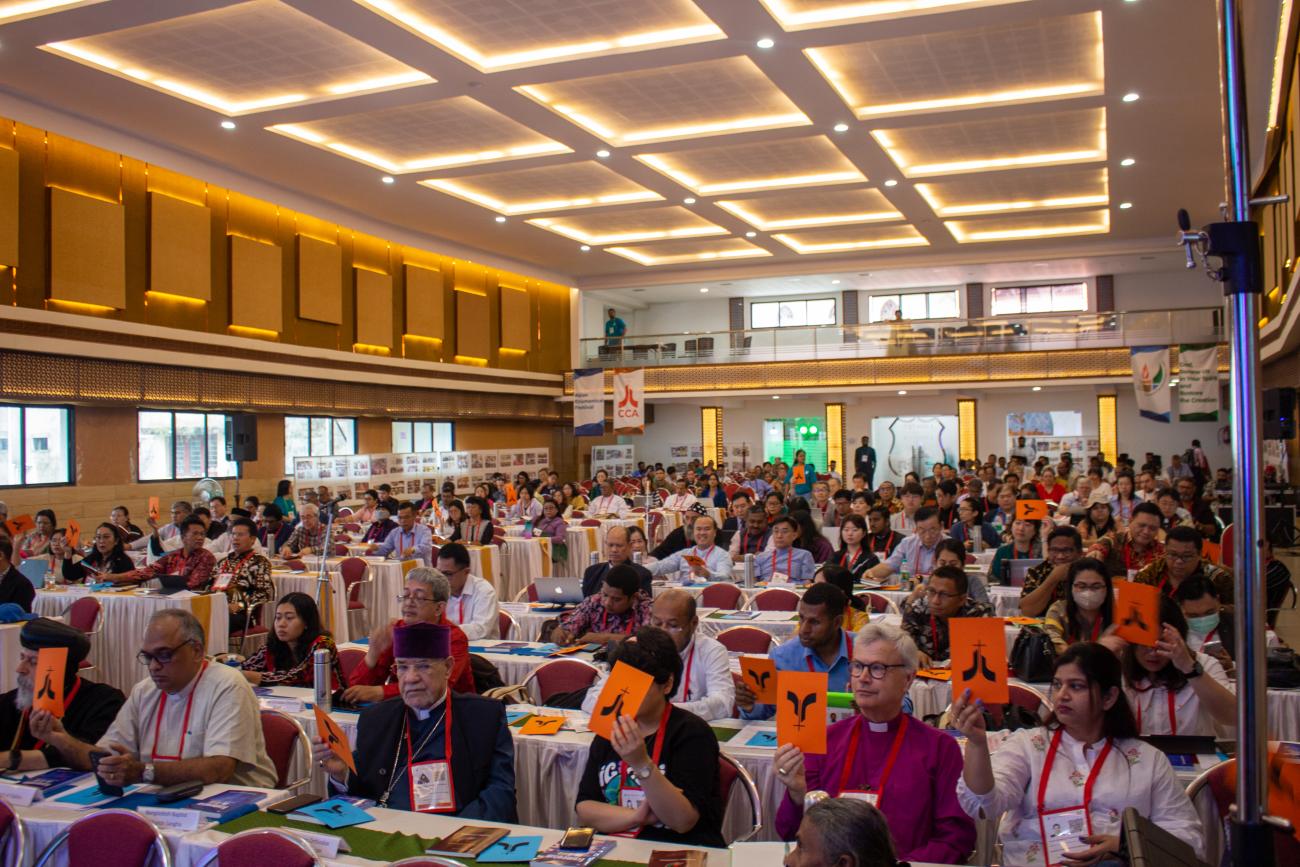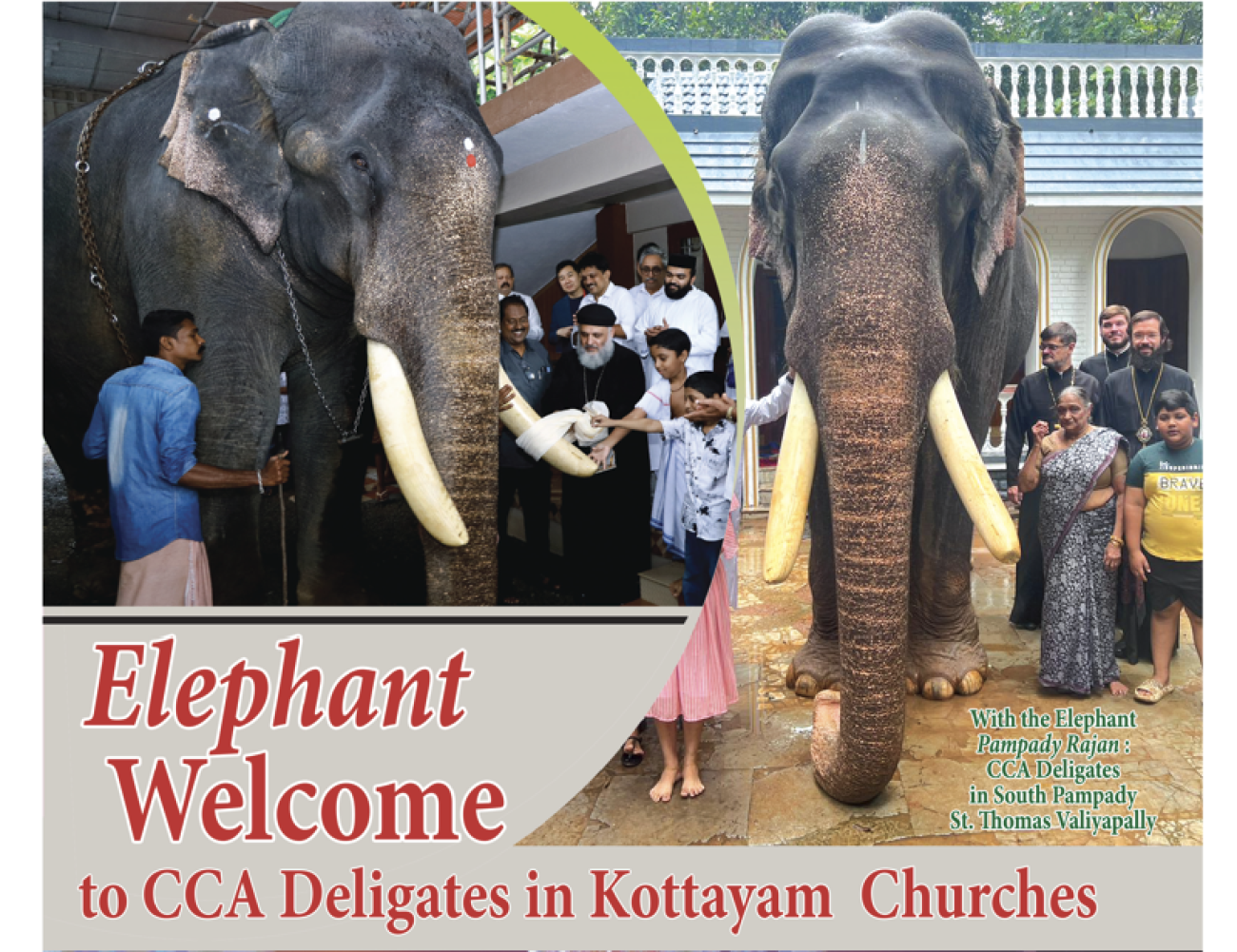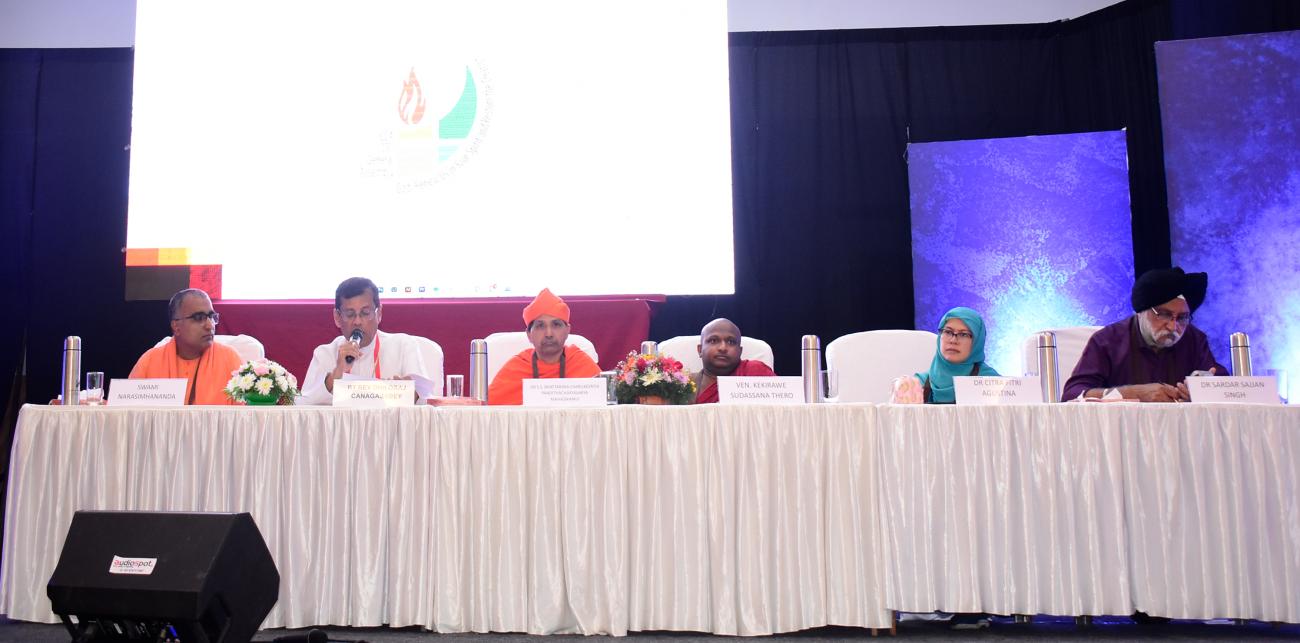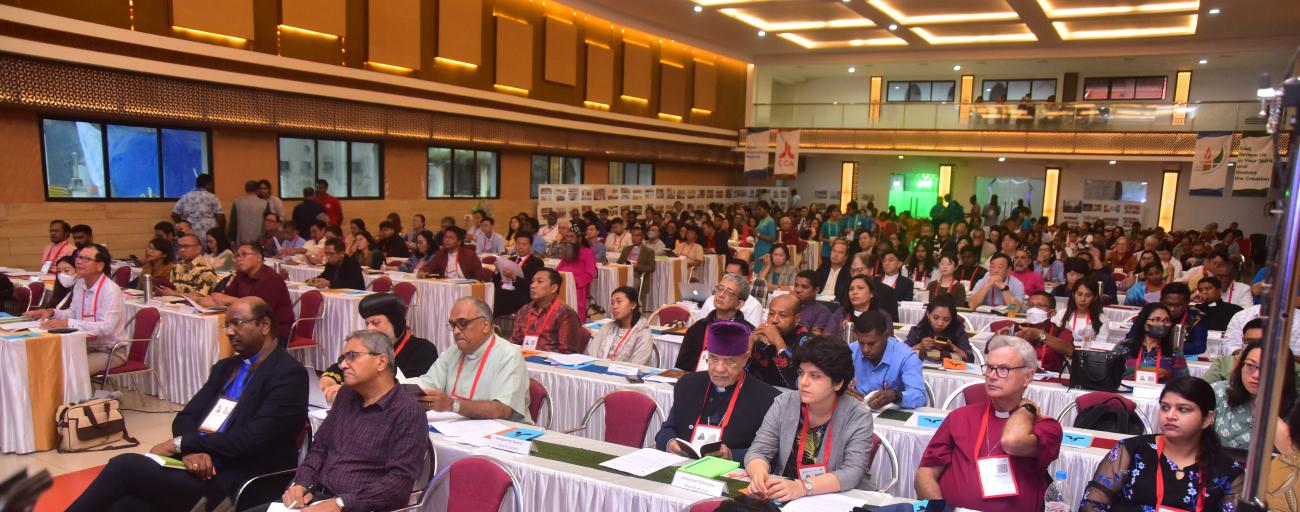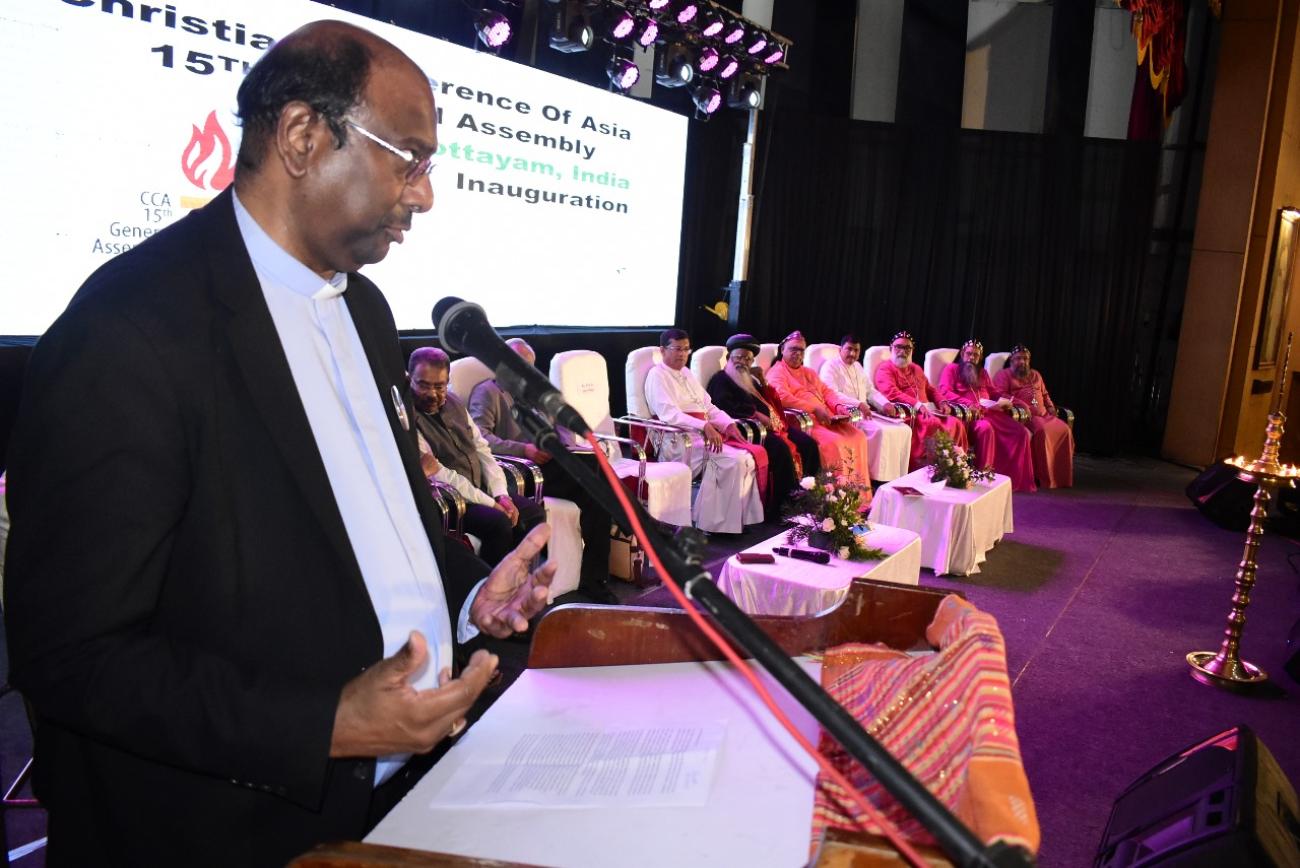Emmanuel-God with us, God in us, God for us and God for others

For the last few years and months we have been reading in the papers and watching on television stories of people on the move because of floods, erruption of volcanoes, landslides, draught, civil, ethnic and tribal wars. This list can go on and on to show how people in our day are getting uprooted from their homes, ancestral properties and places they and their ancestors have lived for generations. These are painful stories to listen to, read in news papers and watch on television. As one listens to these stories and see the horror of untimely deaths and destruction thousands of people one tend to wonder what is happening in the world and ask the question: how could a loving, caring and a merciful God allow these things to happen or watch so many innocent die and do nothing about it. In fact these are the questions posed to theologians and pastors by simple and pious people but disillusioned. These are justified questions and questions of this nature have been raised by most pious and faithful women and men through out the human history and some of these faith questions are recorded in the book of Psalms and Job. (Psalm 13: 1-2)
We are also being made aware because of advancement of science and technology that the root causes for most of nature’s irruptions are not the will of God but nature’s reaction to human actions such as deforestation, off shore drillings, testing and detonation of nuclear bombs underground, excess carbon emissions, building of dams and exploitation of non renewable resources. These are carried out by humans to satisfy their greed for profit making and their desire to accumulate more and more. This is the ugly side of human nature and one can say this is the outcome when human beings become slaves to forces of Mammon. Jesus warned us about it when he said “One cannot serve God and Mammon” (Mt.7:24; Lk16:13). In fact this is the power of sin and the power which alienates human beings from God, one another and God’s entire creation and enslaves humans to gods created in their own image.
It is almost impossible to think of Christmas divorced from the painful realities described above. Christmas is a time set apart in the Church’s calendar to celebrate the birth of Jesus. According to the Gospel of Matthew Jesus is called “Emmanuel” which means “God with us” (Mt. 1:23) who through his ministry became God among us, God for us and God for others. The most pertinent question is: who is this Jesus we celebrate during the season of Christmas and who is this Jesus we invoke to inspire and envision our ministries as the Church is called to reflect and reveal God’s character on this earth? Is he the Jesus of the Gospels or the Jesus we have created out of our own imagination?
The birth of Jesus took place in a context like today where the empires or the principalities and powers of the day were enslaving people and treating them as non humans. We know from history how the Babylonian, Persian, Syrian, Roman empires brutalized their people. This is also true of 20th and 21st centuries Empires. God in Jesus the Christ came to this world and took the form of a human being and lived among the suffering people. John records this fact in his Gospel by saying
“And the Word became flesh and dwelt among us, full of grace and truth;..(Jn.1:14). This is God’s way of speaking to groaning and suffering humanity and God’s heart is spoken out by Jesus when he said “…and lo, I am with you always, to the close of the age.” (Mt. 28: 20)
This makes it absolutely clear that the story of Christmas is a reminder to all of us that God has not abandoned this world but God in Jesus reveals to the world that God of the bible is a God who feels the pain, the agony and the abandonment of God’s people created in God’s image. The story of Christmas is not a story of a triumphant God but a suffering God. God of the bible is not a God of the Empire but God in Jesus Christ who questioned the authority and the legitimacy of the Empire. In fact the song of Mary affirms it when she says “He has shown strength with his arm, he has scattered the proud in the imagination of their hearts, he has put down the mighty from their thrones,…”(Lk. 1: 51f). Therefore, the birth of Jesus shook the very foundation of the Roman Empire and over the years inspired his followers to challenge the principalities and powers. This trend continued until Christianity became a State religion during the 4th Century. However, over the years, even as a remnant community, women and men have opted to imitate Jesus by saying no to Mammon and gods of this world.
As stated above Mary, the mother of Jesus sang a revolutionary song (Lk. 1:46-55) when she was carrying Jesus in her womb. Those words of Mary revealed the character of God with us whom we celebrate during the season of Christmas. Herod the Great trembled in fear when he heard about the birth of Jesus and slaughtered hundreds of children thinking that through that act of violence he can eliminate the threat to his life. We also know that the poor and the vulnerable, like the shepherds, rejoiced at the birth of Jesus when the angels announced to them about the prince of peace. (Lk. 2:14f). In that sense, Jesus, God with us, is good news to the vulnerable, lowly and the meek. Jesus the gentle one is also the righteous one who called the Herod “fox” (Lk.13: 32) and turned the tables of the money changers at the Temple Court (Mk.11:15). On the one hand, at the birth of Jesus evil and inhuman powers trembled, and on the other hand, the weak and the meek sang for joy songs of liberation and hope. Prophet Isaiah’s vision expressed through the words “The people who walked in darkness have seen a great light; those who lived in a land of deep darkness, on them light has shined” (Isa. 9:2) is identified with the life of Jesus in the Gospel of Matthew (Mt. 4:12-17) in order to indicate that his ministry was an embodiment of the vision of prophet Isaiah.
Therefore, the message of Christmas is not about Santa Claus, merry making and grand celebrations with food and drinks in a world where more than 2/3 of humanity suffer from hunger, malnutrition, lack of drinking water, security and opportunities to be human and live in dignity. In such a world the message of Christmas should be another world is possible because Jesus stood for another world and he demonstrated it through his teachings about the reign of God. Christmas, therefore, is a time to repent and rediscover the authentic Jesus as recorded in the Gospels-God with us- who suffers with those who suffer, mourn with those who mourn and die with those who die. The story of the birth of Jesus devoid of the cross is like taking about the crucifixion without the resurrection. Therefore, the story of Christmas is a story of joy and pain, the story of a savior of the world who also becomes a refugee, one who was hunted to be killed and one who is denied, betrayed, tortured and finally killed by the collaborative act of the agents of the institutional religion and the Empire. In spite of it God raised him from the dead and sent him back to the world to be God with us and in and through us. Hence, the Church which claims to be the Body of Christ must reflect in and through all its actions the mind of Christ and become God’s channel of Emmanuel. This is a sacred task and that is the reason we are called to be the Body of Christ and we are the Body of Christ (1Cor. 12:27).
Rienzie Perera
Chiang Mai, November 19, 2010


